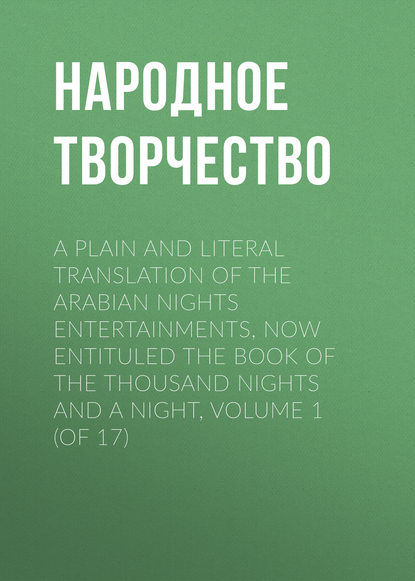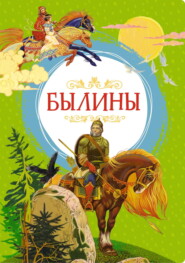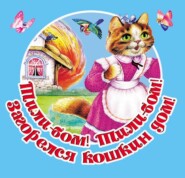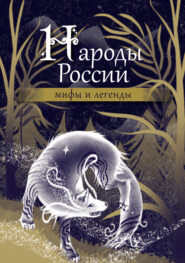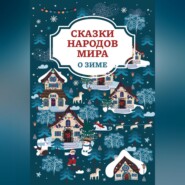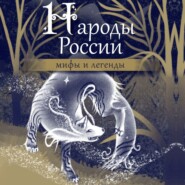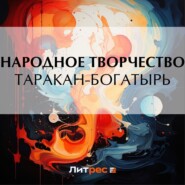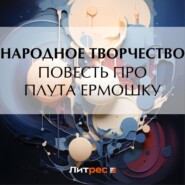По всем вопросам обращайтесь на: info@litportal.ru
(©) 2003-2024.
✖
A plain and literal translation of the Arabian nights entertainments, now entituled The Book of the Thousand Nights and a Night, Volume 1 (of 17)
Настройки чтения
Размер шрифта
Высота строк
Поля
411
Lane and Payne (as well as the Bres. Edit.) both render the word "to kiss her," but this would be clean contrary to Moslem usage.
412
i. e. he was full of rage which he concealed.
413
The Hindus (as the Katha shows) compare this swimming gait with an elephant's roll.
414
Arab. "Fitnah," a word almost as troublesome as "Adab." Primarily, revolt seduction, mischief: then a beautiful girl (or boy), and lastly a certain aphrodisiac perfume extracted from mimosa-flowers (Pilgrimage i., 118).
415
Lit. burst the "gall-bladder: " In this and in the "liver" allusions I dare not be baldly literal.
416
Arab. "Usfur" the seeds of Carthamus tinctorius=Safflower (Forskål, Flora, etc. lv.). The seeds are crushed for oil and the flowers, which must be gathered by virgins or the colour will fail, are extensively used for dyeing in Southern Arabia and Eastern Africa.
417
On such occasions Miss Modesty shuts her eyes and looks as if about to faint.
418
After either evacuation the Moslem is bound to wash or sand the part; first however he should apply three pebbles, or potsherds or clods of earth. Hence the allusion in the Koran (chapt. ix.), "men who love to be purified." When the Prophet was questioning the men of Kuba, where he founded a mosque (Pilgrimage ii., 215), he asked them about their legal ablutions, especially after evacuation; and they told him that they used three stones before washing. Moslems and Hindus (who prefer water mixed with earth) abhor the unclean and unhealthy use of paper without ablution; and the people of India call Europeans draught-houses, by way of opprobrium, "Kághaz-khánah"=paper closets. Most old Anglo-Indians, however, learn to use water.
419
"Miao" or "Mau" is the generic name of the cat in the Egyptian of the hieroglyphs.
420
Arab. "Ya Mash'úm" addressed to an evil spirit.
421
"Heehaw!" as we should say. The Bresl. Edit. makes the cat cry "Nauh! Nauh!" and the ass-colt "Manu! Manu!" I leave these onomatopoeics as they are in Arabic; they are curious, showing the unity in variety of hearing inarticulate sounds. The bird which is called "Whip poor Will" in the U.S., is known to the Brazilians as "Joam corta páo" (John cut wood); so differently do they hear the same notes.
422
It is usually a slab of marble with a long slit in front and a round hole behind. The text speaks of a Kursi (=stool); but this is now unknown to native houses which have not adopted European fashions.
423
This again is chaff as she addresses the Hunchback. The Bul. Edit. has "O Abu Shiháb" (Father of the shooting-star=evil spirit); the Bresl. Edit. "O son of a heap! O son of a Something!" (al-Aísh, a vulgarism).
424
As the reader will see, Arab ideas of "fun" and practical jokes are of the largest, putting the Hibernian to utter rout, and comparing favourably with those recorded in Don Quixote.
425
Arab. "Saráwil" a corruption of the Pers. "Sharwál"; popularly called "libás" which, however, may also mean clothing in general and especially outer-clothing. I translate "bag-trousers" and "petticoat-trousers," the latter being the divided skirt of our future. In the East, where Common Sense, not Fashion, rules dress, men, who have a protuberance to be concealed, wear petticoats and women wear trousers. The feminine article is mostly baggy but sometimes, as in India, collant-tight. A quasi-sacred part of it is the inkle, tape or string, often a most magnificent affair, with tassels of pearl and precious stones; and "laxity in the trouser-string" is equivalent to the loosest conduct. Upon the subject of "libás," "sarwál" and its variants the curious reader will consult Dr. Dozy's "Dictionnaire Détaillé des Noms des Vêtements chez les Arabes," a most valuable work.
426
The turban out of respect is not put upon the ground (Lane, M. E., chapt. i.).
427
Arab. "Madfa'" showing the modern date or the modernization of the tale. In Lebid "Madáfi'" (plur. of Madfa') means water-courses or leats.
428
In Arab, the "he" is a "she;" and Habíb ("friend") is the Attic φίλος, a euphemism for lover. This will occur throughout The Nights. So the Arabs use a phrase corresponding with the Stoic φιλε~ι i. e. is wont, is fain.
429
Part of the Azán, or call to prayer.
430
Arab. "Shiháb," these meteors being the flying shafts shot at evil spirits who approach too near Heaven. The idea doubtless arose from the showers of August and November meteors (The Perseides and Taurides) which suggest a battle raging in upper air. Christendom also has its superstition concerning them and called those of August the "fiery tears of Saint Lawrence," whose festival was on August 10.
431
Arab. "Tákiyah"=Pers. Arak-chin; the calotte worn under the Fez. It is, I have said, now obsolete and the red woollen cap (mostly made in Europe) is worn over the hair; an unclean practice.
432
Often the effect of cold air after a heated room.
433
i. e. He was not a Eunuch, as the people guessed.
434
In Arab, "this night" for the reason before given.
435
Meaning especially the drink prepared of the young leaves and florets of Cannabis Sativa. The word literally means "dry grass" or "herbage." This intoxicant was much used by magicians to produce ecstacy and thus to "deify themselves and receive the homage of the genii and spirits of nature."
Lane and Payne (as well as the Bres. Edit.) both render the word "to kiss her," but this would be clean contrary to Moslem usage.
412
i. e. he was full of rage which he concealed.
413
The Hindus (as the Katha shows) compare this swimming gait with an elephant's roll.
414
Arab. "Fitnah," a word almost as troublesome as "Adab." Primarily, revolt seduction, mischief: then a beautiful girl (or boy), and lastly a certain aphrodisiac perfume extracted from mimosa-flowers (Pilgrimage i., 118).
415
Lit. burst the "gall-bladder: " In this and in the "liver" allusions I dare not be baldly literal.
416
Arab. "Usfur" the seeds of Carthamus tinctorius=Safflower (Forskål, Flora, etc. lv.). The seeds are crushed for oil and the flowers, which must be gathered by virgins or the colour will fail, are extensively used for dyeing in Southern Arabia and Eastern Africa.
417
On such occasions Miss Modesty shuts her eyes and looks as if about to faint.
418
After either evacuation the Moslem is bound to wash or sand the part; first however he should apply three pebbles, or potsherds or clods of earth. Hence the allusion in the Koran (chapt. ix.), "men who love to be purified." When the Prophet was questioning the men of Kuba, where he founded a mosque (Pilgrimage ii., 215), he asked them about their legal ablutions, especially after evacuation; and they told him that they used three stones before washing. Moslems and Hindus (who prefer water mixed with earth) abhor the unclean and unhealthy use of paper without ablution; and the people of India call Europeans draught-houses, by way of opprobrium, "Kághaz-khánah"=paper closets. Most old Anglo-Indians, however, learn to use water.
419
"Miao" or "Mau" is the generic name of the cat in the Egyptian of the hieroglyphs.
420
Arab. "Ya Mash'úm" addressed to an evil spirit.
421
"Heehaw!" as we should say. The Bresl. Edit. makes the cat cry "Nauh! Nauh!" and the ass-colt "Manu! Manu!" I leave these onomatopoeics as they are in Arabic; they are curious, showing the unity in variety of hearing inarticulate sounds. The bird which is called "Whip poor Will" in the U.S., is known to the Brazilians as "Joam corta páo" (John cut wood); so differently do they hear the same notes.
422
It is usually a slab of marble with a long slit in front and a round hole behind. The text speaks of a Kursi (=stool); but this is now unknown to native houses which have not adopted European fashions.
423
This again is chaff as she addresses the Hunchback. The Bul. Edit. has "O Abu Shiháb" (Father of the shooting-star=evil spirit); the Bresl. Edit. "O son of a heap! O son of a Something!" (al-Aísh, a vulgarism).
424
As the reader will see, Arab ideas of "fun" and practical jokes are of the largest, putting the Hibernian to utter rout, and comparing favourably with those recorded in Don Quixote.
425
Arab. "Saráwil" a corruption of the Pers. "Sharwál"; popularly called "libás" which, however, may also mean clothing in general and especially outer-clothing. I translate "bag-trousers" and "petticoat-trousers," the latter being the divided skirt of our future. In the East, where Common Sense, not Fashion, rules dress, men, who have a protuberance to be concealed, wear petticoats and women wear trousers. The feminine article is mostly baggy but sometimes, as in India, collant-tight. A quasi-sacred part of it is the inkle, tape or string, often a most magnificent affair, with tassels of pearl and precious stones; and "laxity in the trouser-string" is equivalent to the loosest conduct. Upon the subject of "libás," "sarwál" and its variants the curious reader will consult Dr. Dozy's "Dictionnaire Détaillé des Noms des Vêtements chez les Arabes," a most valuable work.
426
The turban out of respect is not put upon the ground (Lane, M. E., chapt. i.).
427
Arab. "Madfa'" showing the modern date or the modernization of the tale. In Lebid "Madáfi'" (plur. of Madfa') means water-courses or leats.
428
In Arab, the "he" is a "she;" and Habíb ("friend") is the Attic φίλος, a euphemism for lover. This will occur throughout The Nights. So the Arabs use a phrase corresponding with the Stoic φιλε~ι i. e. is wont, is fain.
429
Part of the Azán, or call to prayer.
430
Arab. "Shiháb," these meteors being the flying shafts shot at evil spirits who approach too near Heaven. The idea doubtless arose from the showers of August and November meteors (The Perseides and Taurides) which suggest a battle raging in upper air. Christendom also has its superstition concerning them and called those of August the "fiery tears of Saint Lawrence," whose festival was on August 10.
431
Arab. "Tákiyah"=Pers. Arak-chin; the calotte worn under the Fez. It is, I have said, now obsolete and the red woollen cap (mostly made in Europe) is worn over the hair; an unclean practice.
432
Often the effect of cold air after a heated room.
433
i. e. He was not a Eunuch, as the people guessed.
434
In Arab, "this night" for the reason before given.
435
Meaning especially the drink prepared of the young leaves and florets of Cannabis Sativa. The word literally means "dry grass" or "herbage." This intoxicant was much used by magicians to produce ecstacy and thus to "deify themselves and receive the homage of the genii and spirits of nature."





